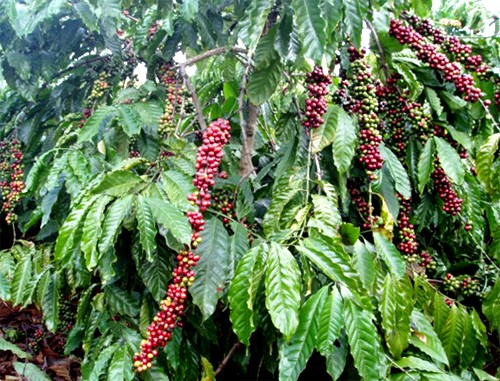(VOVworld) – Vietnam has exported a great deal of agricultural and aquatic products but many items remain in the form of raw materials. This issue is receiving much attention from the Vietnamese government in its strategic export orientation.
To date, Vietnam has 24 export items earning revenues of more than 1 billion USD each. But many key agricultural products are still exported in the form of unprocessed raw materials. The weakness of the domestic support industry is increasing production costs and reducing competitiveness.
 |
| According to Ministry of Agriculture and Rural Development, in the second quarter, exports of agricultural, forestry, and fishery products experienced the boost in both quantity and quality. |
To deal with the situation, Vietnamese exporters are doing their best to devise strategies focused on key markets and increased investment in advanced technologies to create export items of greater added value.
Do Kim Lang, Deputy Director of the Trade Promotion Department of the Ministry of Industry and Trade, said: “We should re-set development orientations for priority industries and areas until 2020.In order to penetrate major world markets, especially the advanced technology market, we need to invest much more in the support industry and small and medium-sized enterprises should be given priority.”
To increase the added value of export products, during the 2011-2013 period provinces and sectors were asked to review the planning of export items in which priority was given to high potential fields and developing brands strong enough to compete in high-end markets.
Nguyen Thi Hong, deputy chairwoman of Ho Chi Minh City’s People’s Committee, said: “Ho Chi Minh City is focusing on increasing the added value of each export item by making full use of domestic supplies of material resources. We’ve also called for investment in advanced technology to create products of greater added value, particularly items with recognizable Vietnamese identity.”
Recently Vietnam’s agricultural and aquatic products have received a positive signal when the US - a demanding market for food hygiene and safety - decided to import Vietnam’s fresh lychees and longans and began considering the licensing of mangos and star apples. This will be a great opportunity for Vietnamese farmers and businesses to start conquering world markets.
In August, the first tuna export contract was signed under a pilot model using Japanese technology, marking the beginning of a new era. Vietnam is negotiating a number of free trade agreements which will help to expand the country’s export market in the future.